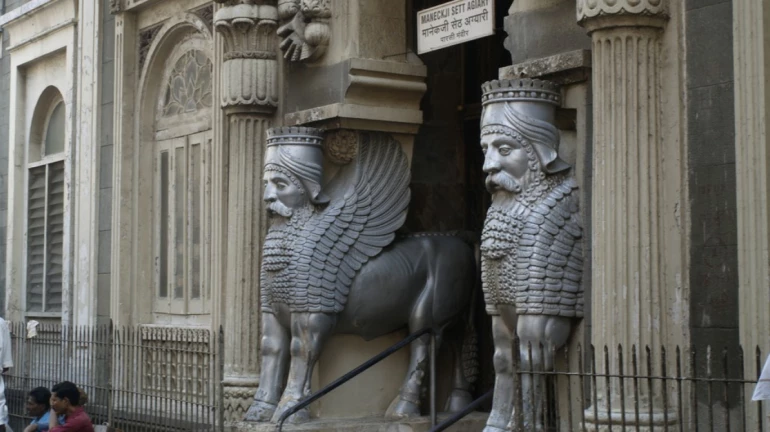
Mumbai’s Parsi community is often described as being a “world within a world”. Mumbai’s Parsi legacy has historic importance over centuries. Mumbai’s Parsi followers are mainly Zoroastrian religion. The Faravahar is an ancient symbol of the Zoroastrian faith. Fire is another important symbol of Zoroastrianism, as it represents light, warmth and has purifying powers. If you travel from Dadar to Colaba, Zoroastrian symbols are visible throughout the road. There are an estimated 100,000 Zoroastrians scattered across the subcontinent, and the majority of them are in Mumbai. The Dadar Parsi Colony is the largest and oldest among 25 other Parsi colonies in Mumbai. It consists of approximately 12 per cent of the global Parsi community. There are many libraries, ceremony hall, seminary, school, temple, and grounds nestled within the Victorian architecture and tree-lined streets in Dadar Parsi Colony.
Mumbai is world-famous for many Parsi cafes and restaurants. One of the oldest and famous Parsi/Irani restaurants in Mumbai is “Britannia & Co. Restaurant” which is located at Ballard Estate, Fort, this restaurant has historic importance. Other than that there are many famous Parsi restaurants in South Mumbai. Some of the oldest and famous Parsi cafes in Mumbai are Yazdani Bakery, Café Military, Jimmy Boy, Kayani Bakery & Co, Paradise which are located in South Mumbai. People visit here with family and friends to enjoy the Parsi food.
Mumbai is a place known for many religions, cultures, creeds and traditions. Many Parsi moved to Mumbai in 1640. Dorabji Nanabhoy was the first Parsi to arrive in Mumbai in the year 1640. Dorabji Nanabhoy worked as a manager for the Portuguese people. Many Parsis migrated to Mumbai after him. Many big Industrialist Ratan Tata Chairman of Tata Group, owner of Parsi restaurants and bakeries have settled in Mumbai. Whereas Cowasjee Nanabhoy Davar became an industrialist and set up the first cotton mill of India, Sorabji Pochkhanawala helped to introduce the Central Bank of India, and Pherozeshah Mehta became one of the founders of the Indian National Congress. According to the census, 6.7 per cent of the Parsi population lives in Mumbai while the number of Parsis in India fell from 100,000 in 1941 to 60,000 in 2011.





